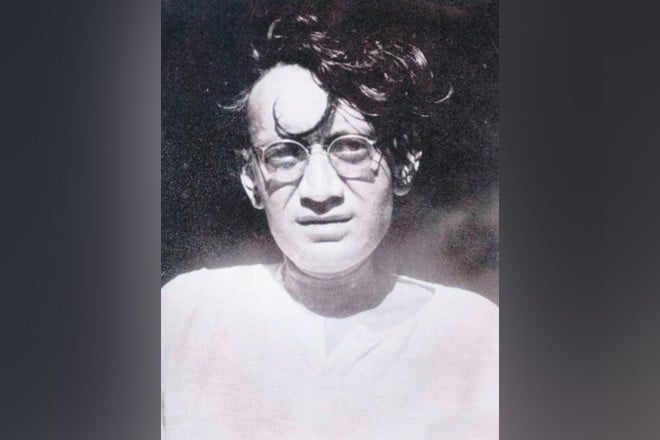

Saadat Hassan Manto, the legendary Urdu short-story writer, wrote unforgettable novels, short stories, radio scripts and profiles; he wrote about Madam Noor Jehan, Ashok Kumar, Nargis and Ismat Chugtai, but his essay on Pakistan’s first indigenous filmmaker Anwar Kamal Pasha is worth remembering. Pasha was famous for his films Do Aansoo, Ghulam and Gumnaam, usually penned by his legendary father Hakim Ahmed Shuja. But despite all qualities of a legend, Pasha was famous for throwing tantrums and degrading seniors, and one day Manto decided to take the producer/director to task.
Pasha is considered a pioneer in Pakistan’s film industry. Being the son of the famous Urdu playwright, poet and scholar Hakim Ahmed Shuja, who was awarded Medal of the British Empire for his literary works, Pasha mostly used to script, produce and direct his own films and his father used to pen the stories. A Masters in English Literature, Pasha was associated with the Excise and Taxation Department for a short time before joining films. Famous for making well-structured and well-scripted films, Pasha got success very early in his career, and unfortunately it went to his head.
One of his productions, Qatil was a breakthrough. It cast the legendary Santosh Kumar in a unique role. It marked the debuts of Nayyar Sultana, Musarrat Nazir and Aslam Pervaiz. Its music was composed by Master Inayat Hussain and the soundtrack included evergreen classics like Iqbal Bano’s ‘Ulfat ki nayee manzil’ and the film also introduced playback singer Saleem Raza through the song ‘Aatey ho yaad baar baar’.
The story was unique and somewhere along the plot, the director wanted Meena (Sabiha Khannum) to return from the dead. Anwar Kamal Pasha could not come up with a solution and here is when he accidentally met Manto.
Employed at Lahore’s Shah Noor Studio’s story department, Manto eventually encountered Pasha. Being a journalist, Manto was well aware of Pasha’s behavior and had blasted the rising director’s personality, way of thinking and had even predicted a dark future for him.
However, for 500 rupees Manto did solve Pasha’s problem of how to bring Meena back to life. Manto writes, "Pasha started narrating the whole story which was meaningless to me. I had to cut him short as he resembled a policeman who shouts to pedestrians to move, on a loudspeaker. I understood his problem after listening to the ‘particular’ scene and gave the solution in exchange of 500 rupees, realizing how low I had sunk."
The solution he suggested: After the hero poisons his wife, he must dump her body in a jungle. A snake arrives and bites the lady, extracting all of the poison from the presumed ‘dead’. The poison from the lady’s body kills the snake but the lady survives.
The film released on 21st January 1955 and Manto tragically died just three days before the release.
Anwar Kamal Pasha did manage to make couple of more films after Qatil, most of them were smash-hits: Inteqaam (1955), Sarfarosh (1956), Chan Mahi (1956), Anar Kali (1958) and Watan (1960) but eventually lost his way. Pasha’s writing style was adapted by Riaz Shahid in a better and a crisper way; Shahid directed country’s first platinum jubilee film, Zarqa in 1969.
At this point Pakistan’s film industry started changing. Santosh Kumar and Sabiha Khanum moved to character roles, Musarrat Nazir left the industry after getting married, Aslam Pervaiz was accepted as a villain rather than a hero, while Pasha’s tenure gradually started fading out. The last heroine he launched - Rani – failed to achieve stardom, until she was taken under the wings of one of his protégés, Hasan Tariq. Arrogance led to Pasha’s ultimate fall and he had to bow out, before he turned 40.
Manto died at the age of 42. He is still one of the most read Urdu writers and is discussed amongst the youth and his work still gets translated into many languages. Blockbusters like Badnaam (1966) and Ek Gunah aur Sahi (1975) were inspired by his writings but were produced many years after he died. Pakistan Television aired stories by Manto in 70s and 90s, (not in 80s strangely), while private channels produced serials like Manto Rama and Manto Kahani in recent years. On his 50th death anniversary, Manto was commemorated on a Pakistani postage stamp, and seven years later, was posthumously awarded Nishan-e-Imtiaz award.